NAIROBI, Kenya, Sept 20 – It is a fair assessment to say that the journey to fully implement the Competency-Based Curriculum (CBC) has been anything but easy.
Stakeholders charged with ensuring its smooth implementation insist that a multi-faceted and collaborative effort will ensure challenges raised are addressed in order to facilitate the transition from the ‘talk and chalk’ pedagogical approach of the 36-year-old 8-4-4 education system to the learner-centered and skill-based, 2-6-3-3-3 (CBC) system of education.
Already, the Kenya Institute of Curriculum Development (KICD) has commenced a review process of the CBC following widespread outcry, in a bid to remedy some of the challenges raised by stakeholders.
–CBC Review Process–
According to KICD Chief Executive Prof. Charles Ong’ondo, the review process will be extended from pre-primary 1 to grade three. Progressively, further reviews will be conducted based on feedback from stakeholders after the end of the five-year implementation cycle next year, when learners will have proceeded to grade six.
A report of the findings of the review process will therein be made available.
“We are already working on reviewing the early years up to grade three and our quality assurance teams are at work. I want to assure you that we are in grade 5 in the implementation of the CBC. We start grade 6 in April 2022 and at the end of this, it shall be the end of the cycle, after which we shall start another review,” KICD CEO, Prof. Ong’ondo said during an interview with Shahidi News.
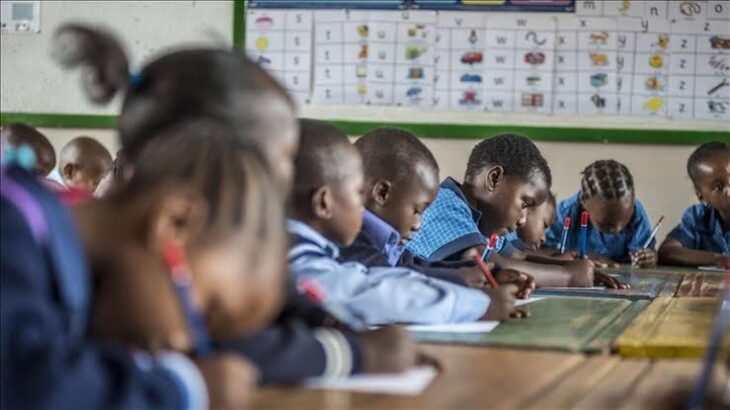
The KICD boss who was speaking during a stakeholder engagement with journalists over the weekend further revealed that “We shall be looking at the content and reviewing whether there might have been an overload at some stage or even classes. We shall be asking questions about whether we might have been ambitious in certain areas as well as identify possible gaps in teachers’ and parents’ expectations for the learners. The CBC is not cast in stone, it is a living document,” he said.
Unlike during the long reign of the 8-4-4 system, curriculum developers hope to now adhere to the International Bureau of Education’s (IBE, which is a UNESCO Category 1 institute) recommendation as well as that of the African Union Agenda 2063, Sustainable Development Goal, to review the curriculum every five years.
It is also in line with the East African Community’s aspiration to harmonize the region’s education curriculum towards learning outcomes and competencies.
–CBC Challenges–
Already in the early stages of learning under the CBC, the review conducted by KICD revealed worrying findings such as inadequate time allocated for several learning areas such as Kiswahili, English, and Literacy.
The challenges raised by stakeholders include inadequate teacher preparedness, cost implication on parents to purchase certain learning materials, poor infrastructure in learning institutions among many others.
A parent who spoke to Shahidi News said that the school his child goes to has made incessant demands to purchase several textbooks, despite the government already providing books to learners in the ratio of 1:1.
“I have been forced to purchase several books. I wonder, did the government buy books for learners? I was told one book was enough per subject yet now I have to buy several which I feel is not necessary,” the parent who did want to be named said.
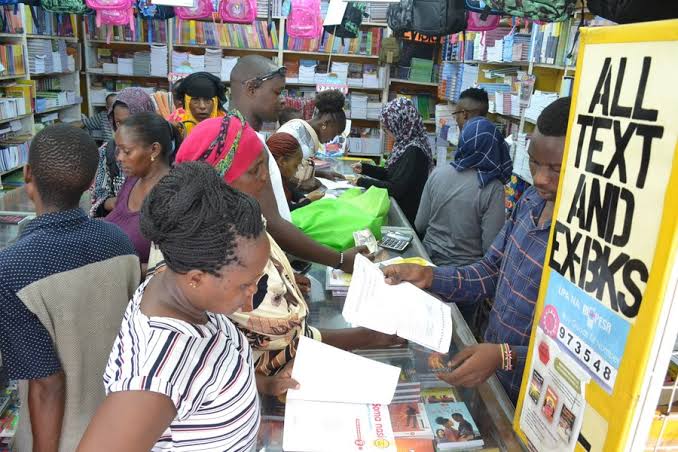
Recently, Education Cabinet Secretary Prof. George Magoha refuted claims of ‘an expensive curriculum’ saying that the government has fully funded the curriculum in order to ensure its success.
“First of all, it is unfair for you to ask how much it will cost to implement CBC. You should ask yourself how much is the government giving and is the government giving it,” he said.
Magoha however called on teachers to ease the burden on parents in terms of expenses by encouraging them to use locally available resources while teaching.
“Teachers in public, private schools…anything that should be printed should be projected in the school because every school has a means of projecting. If something needs printing and it is not working, it is cheaper for the teacher to capture it and project,” he said.
Even as Magoha accused a section of stakeholders of ‘confusing and distracting’ learners and parents alike on the CBC implementation process, other education officials also called on private school administrators to refrain from putting unnecessary pressure on parents by demanding them to purchase excess learning materials.
“A child will only need one book recommended by the government. Some of these issues also concern us since the demands defeat the purpose of the CBC,” a Ministry of Education official told Shahidi News.
Already, the Law Society of Kenya president Nelson Havi has filed a petition challenging the competency-based curriculum.
Havi argues that the ministry of education has contravened every law and mismanaged the education of children.
“Dr. Fred Matiang’i and prof George Magoha will have to explain the basis upon which they related 8-4-4 system of education codified in section 41 of the Basic Education Act in the guise of changing curriculum when the system of education is a function of legislation by parliament,” said Havi.
KICD has consistently reiterated it has held key stakeholder engagements over the curriculum reforms in the last six years while the Ministry of Education also said that the CBC issue has already been deliberated and approved in the National Assembly before it was rolled out nationally in 2019.
“This competency-based curriculum is here to stay. In my life, it is the most transformative thing I have seen. I used to be worried that our teachers will compromise it but even the teachers love it,” said Magoha during stakeholders meeting at the Kenya Institute of Curriculum Development (KICD).
–CBC Learning Structure–
The 2-6-3-3-3 is tailored around seven core competencies that learners must have in one form or another have attained by the end of their learning.
They include communication and collaboration, critical thinking and problem solving, imagination and creativity, citizenship, digital literacy, learning to learn, and self-efficacy.
It further recommends that learners should join institutions of learning at the early stages in pre-primary 1 at the age of four before proceeding to Pre-primary 2.
The learner will then proceed to primary school which has been graded and divided into lower and upper primary.
Lower primary will commence at grades 1, 2, and 3 while upper primary will begin in grades 4, 5, and 6.
At this point in time, the CBC has been rolled out up to grade 5. Learners will join grade 6 next year (2022) before joining secondary school.
It is worth noting that before proceeding to secondary school, learners will undertake a summative assessment at grade 6 that will be worth 40 marks. This will be combined with the initial 20 marks awarded in the formative assesement in grades 4,5 and even 6 totaling 100 marks.
A criteria for the transition from primary to secondary school is currently being developed. Secondary School will be divided into junior and senior secondary school.
Junior Secondary School will consist of grades 7, 8, and 9 while Senior Secondary School will consist of grade 10,11 and 12 which will be rolled out in 2028, completely phasing out the old education system.
Learners will undertake a national assessment at the end of grade 9 which will determine their placement in senior secondary school, in turn following their preferred career pathways.
Learners will make choices from a range of disciplines organized in three pathways and nine tracks based on their abilities, interests, and career choices.
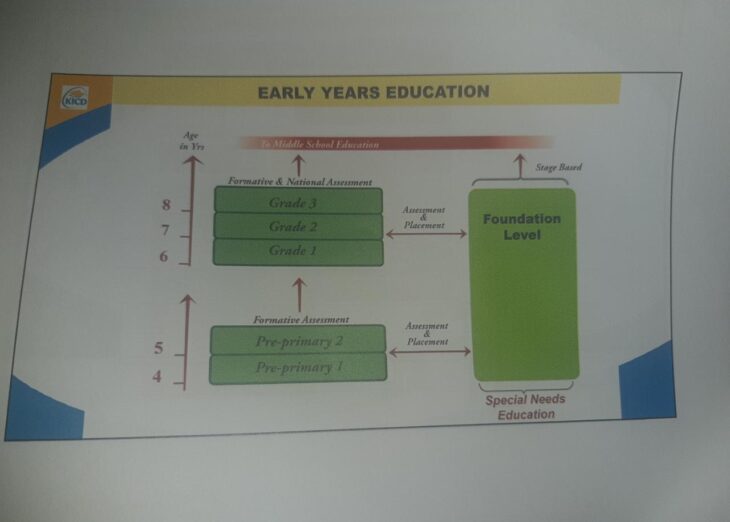
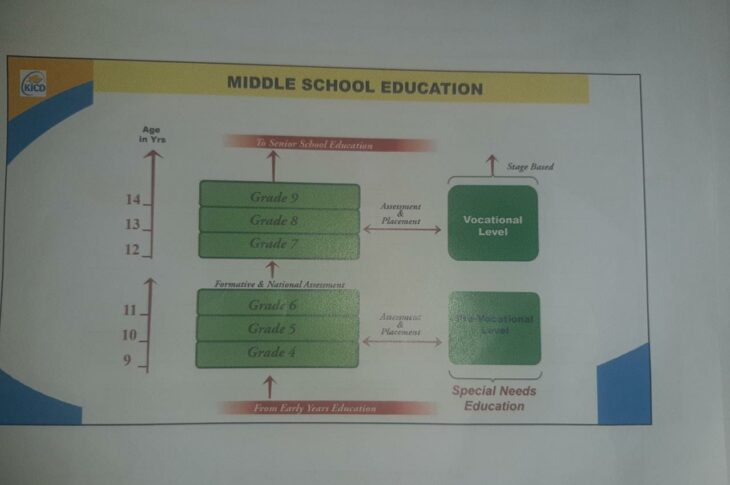
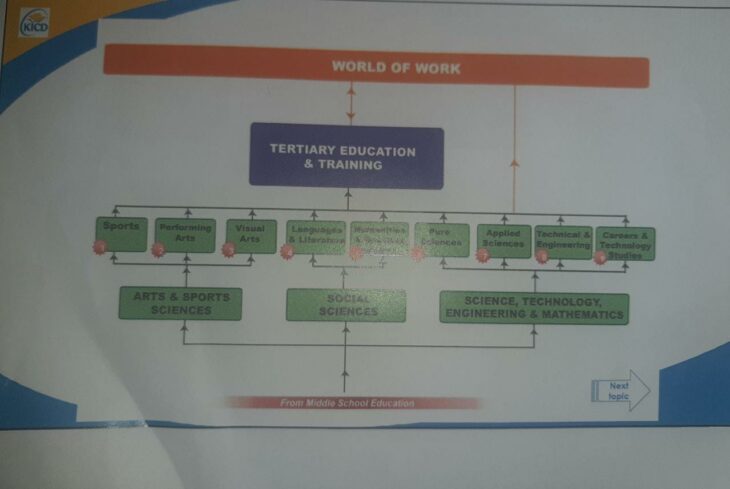
The pathways include Science, Technology, Engineering and Mathematics(STEM), Social Sciences, and Sports Science and Arts sciences. Each pathway has various subjects under it.
To fully master one’s skills/specialize, learners will then finally proceed to tertiary institutions (TVET, Colleges or Universities) for a couple of years depending with one’s course before joining the job market.
Stakeholders have meanwhile called for a re-organization of structures and programmes in universities to ensure they adequately cater to learners pursuing STEM courses as well sports and the performing arts in line with CBC guidelines.
–KNEC Assessment–
Kenya National Examination Council (KNEC) Chief Executive Dr. David Njeng’ere says the examination body has already and will continue to contextualize the assessment by determining its purpose, mode, tools to be used, and even reporting of results which traditionally has raised or brought down the stakes.
“The 8-4-4 curriculum only benefited 20 percent of the students who got between a grade of C to A. This system says that if you are not good in maths, science, and humanities you are not likely to excel, This means you have not been empowered…this is why we said we want to empower learners (through CBC),” Dr. Njeng’ere told Shahidi News.
For learners in the lower level, between grades 1,2, and 3, KNEC has developed a school based assessment that is being administered by the teachers who then give the relevant scores to their learners. The data is then put to the KNEC portal.
“For each level, we will allocate 20 marks out of everything the child has done. The information is normally recorded in the learners portfolio. There were fears in the country that teachers will give learners grades that do not belong to them. There was no attempt to massage numbers (previous assessment). The peak was at 8.9 out of 20 as indicated in our national curve of the assessment. Teachers were very professional, if we noticed an abnormal curve, we would have come in,” he said.
KNEC conducts random visits to schools to establish whether the final report on learners’ performance matches their portfolios.
–School Infrastructure Development–
Proponents of the CBC know all too well that for the curriculum to be fully implemented there is need for infrastructural investment in learning institutions such as, establishment of new classes, laboratories, sporting facilities among many others.
This will need to be done sooner rather than later, particularly since a double intake will be witnessed when learners join secondary school under the CBC and 8-4-4 education system in 2023.
Equipping learners is also vital for the CBC to be a success and with digital literacy as one of the main core competencies, there is a need to ensure learners are equipped with the relevant tools.
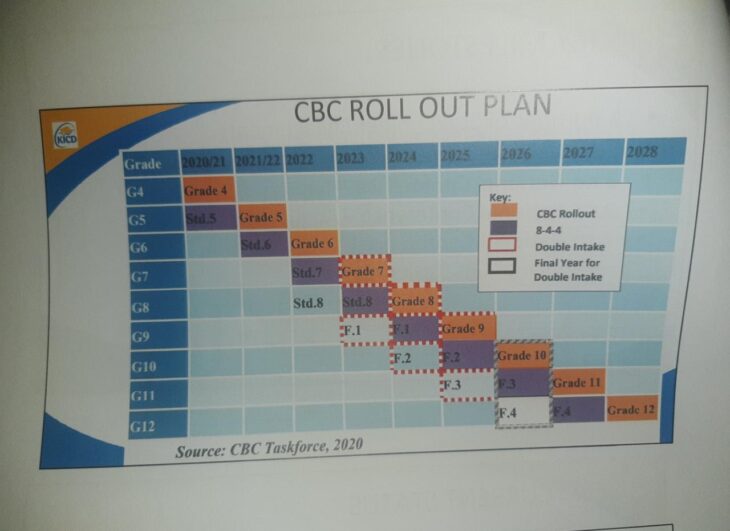
Already, at least 21,636 public schools have been equipped with tablets, as a result facilitating learning for the 21st century learner. However, 1,191 schools are yet to receive the digital tools of learning.
“We hope to equip schools that have not received the tablets soon,” another Ministry of Education told Shahidi News.
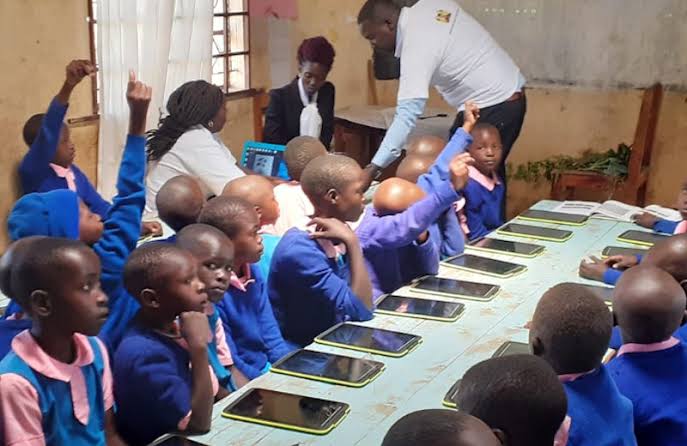
KICD says schools yet to receive tablets had been established years after the project was commissioned. An assembly line has been put up in Moi University and the Jomo Kenyatta University of Agriculture and Technology (JKUAT) to facilitate the supply of the devices.
The Teacher’s Service Commission has also been urged to ensure teachers are regularly trained on the CBC so as to keep up with the demands of the curriculum.
According to the teachers’ employer, 228,000 teachers in primary schools have already been trained on the CBC between 2019 and February 2021.
A further 106,000 teachers are set to be trained in the next phase while 60,000 teachers will also be trained to facilitate learners transitioning to Junior Secondary School in 2022.
–Plea to Parents–
Though some parents have consistently complained of the cost implications of the CBC and their involvement with the children’s assignment, curriculum proponents say that it is vital they are involved in their children’s education, as it is no longer the sole responsibility of teachers.
“Every parent is intelligent, they must engage with their children whether they like it or not. That is why the children are behaving the way they are. Why are we making things very difficult? What do people want to do when they demonize one of the most important thing that is supposed to be a presidential legacy project? If it is politics, excuse me, I don’t do it, please leave me out of it, ” CS Magoha asserted.
The Basic Education Curriculum Framework emphasizes the importance of parental empowerment and engagement.
Parents are called on to actively engage in the children’s learning and holistic development in collaboration with teachers and other stakeholders. Learning experiences at home will be geared towards reinforcing what is learned at school.
“Parents should be involved in the formulation of decisions affecting the learner’s overall well-being within and outside the school,” read a section of the guidelines on parental empowerment and engagement.
This is said to help learners realize their full potential.
KICD is now set to this week engage numerous stakeholders on curriculum reforms including the parents association, primary and secondary school association, and teachers’ unions.
Want to send us a story? Contact Shahidi News Tel: +254115512797 (Mobile & WhatsApp)


